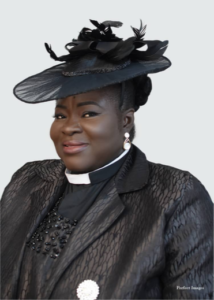Overview
Wenchi Municipal, located in the Bono Region of Ghana, has a population of 132,784 as of 2024. The municipality is divided into six sub-municipals encompassing 112 major communities. Its landscape includes diverse soils, geology, climate, and vegetation, all of which influence the transportation systems within the area.
Location
Wenchi Municipality is one of twelve districts in the Bono Region, positioned in the region’s western part. It is located northeast of Sunyani, the regional capital. Geographically, Wenchi lies between latitudes 7.5° South to 8.75° North and longitudes 2.87° West to 0.47° East, covering an area of 7,619 square kilometers. It borders Techiman North and Municipal to the east, Kintampo North and South districts to the north, Sunyani West to the south, and Tain and Banda to the west.
Site of attraction
Wenchi is the hometown of Dr. K. A. Busia, a prominent figure in Ghana’s history and a former Prime Minister of the country. The town features a museum dedicated to Dr. Busia, showcasing his life, work, and contributions to Ghana’s political landscape. This museum serves as a significant site of attraction, drawing visitors interested in learning about his legacy and the historical context of his era. Additionally, the museum houses various artifacts, personal belongings, and documents that provide insight into Dr. Busia’s impact on Ghanaian society.
Soils and Geology
The municipality predominantly features savannah ochrosol soils with some lithosols. The terrain is generally low-lying, and the soils are primarily sandy loam, with loamy soils in the valleys. These soils are nutrient-rich and support the cultivation of crops such as maize, yams, cocoyams, and cassava.
Climate
Wenchi experiences a high average temperature of about 24.5oC (76oF) throughout the year, with maximum temperatures reaching 30.9oC and minimum temperatures dropping to 21.2oC. The hottest months are typically from February to April. The rainfall pattern is seasonal, which poses a limitation for agriculture and plant growth. The municipality experiences two main seasons: the rainy season and the dry season.
Vegetation
The vegetation in Wenchi spans moist semi-deciduous forests and Guinea Savannah woodland. The Guinea Savannah represents an eco-climatic zone developed in response to climate changes. However, the original forest vegetation has suffered significant degradation due to indiscriminate bush fires, slash-and-burn agriculture, logging, and tree felling for fuel.
Road and transportation
A robust road network is crucial for rural development, influencing the movement patterns and distribution of goods and services. Wenchi’s road network ensures that every settlement is accessible, albeit the quality of roads varies. The major highway traversing the municipality is the Kumasi-Wa road, one of the few tarred roads and the best in the area. This road facilitates transport for settlements along its path. Another significant highway is the Wenchi-Menji-Banda- Sampa road, leading to Côte d’Ivoire. This road is tarred up to Nsawkaw, the capital of Tain District. Numerous feeder roads connect these two major highways.
demographics
The main indigenous ethnic groups in Wenchi are the Brong, Banda, and Mo. The immigrant population includes Dagaabas from the Upper West Region, who are primarily farmers, and the Bator from the Volta Region, who engage in fishing. The Banda (Ligbis) are predominantly Muslims, while the Brong, Mo, and others are mainly Christians, with a few practicing traditional religions.
Economic activities
Farming is the principal occupation in Wenchi, with cashew, yam, and cassava being the main commercial crops. Charcoal production is also significant, practiced extensively throughout the municipality.
Health sector
The Wenchi Municipal Health Directorate, through its Municipal Health Management Team (MHMT) and Sub-Municipal Health Management Teams (SMHMTs), implements and manages national and regional health policies. The directorate collaborates with various stakeholders, including the Municipal Assembly and Non-Governmental Organizations (NGOs), to ensure efficient service delivery.
The health sector in Wenchi is divided into public and private sectors. The Ghana Health Service oversees the public sector, providing both curative and preventive care through health centers, maternity homes, and CHPS (Community-based Health Planning and Services) zones. The private sector is dominated by drug outlets, including chemical sellers and numerous drug peddlers. These peddlers, often semi-illiterate but adept at sales, can be classified into three categories: herbal medicine sellers, biomedical drug peddlers, and neo-herbalists who sell both herbal and modern drugs.
Health facilities
Wenchi Municipal boasts a range of health facilities, including two hospitals: Methodist Hospital and Emil Hospital; six health centers: Wenchi Health Center, Droboso Health Center, Nchiraa Health Center, Subinso Health Center, Nyaase Health Center, and Tromeso Health Center; two clinics: St. Joseph Clinic and Jet Rock Clinic; a Government Maternity Home; and nine completed CHPS compounds: Nwoase, Zongo, Agubie, Amponsahkrom, Branam, Buoku, Ayigbe, Nyanponase, and Botinso. These facilities ensure that healthcare services are accessible to the population, supporting the overall health and well-being of the municipality’s residents.



